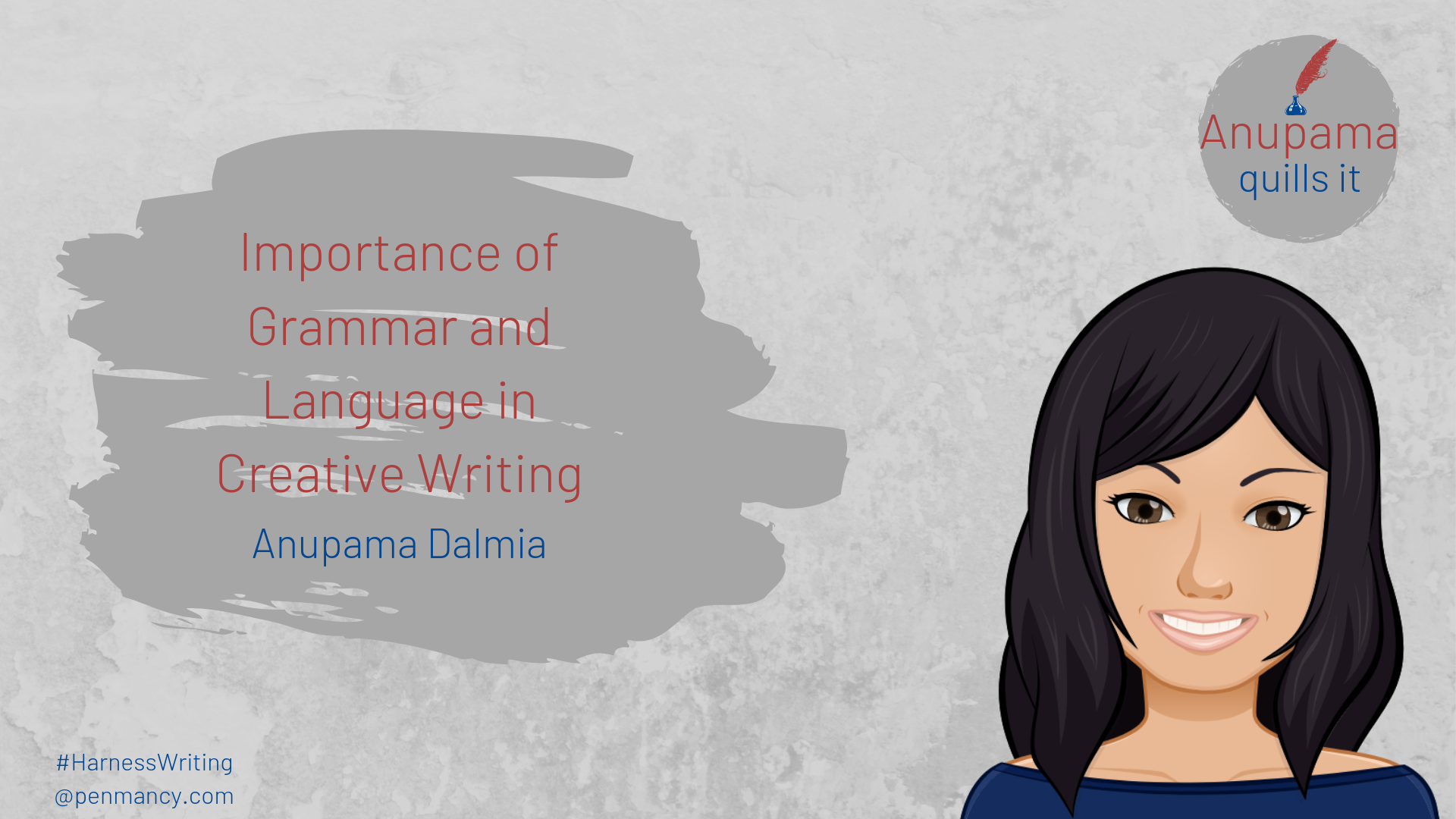
As a mentor, time and again I have many writers come up to me to share how they love writing and nurture great thoughts in their minds to express, but they lack a strong hold on grammar and vocabulary knowledge which makes them hesitant and low on confidence. While creative writing has so much more to it than grammatically correct sentences, one cannot undermine the importance of the right grammar and appropriate vocabulary usage. To me, more than anything else, it is about respecting the language we choose to express ourselves in. It is our responsibility as writers to spend time and effort to firm our grasp on our communication medium. In fact, if you Google it, you will find umpteen jokes on the internet about how a wrong punctuation or a misspelt word or an incorrect preposition can change the entire context or meaning of a sentence. Similarly, while effective writing is not just about using heavy words, but at times a powerful word can add weight and beauty to the narration and can also help in giving the readers specific details around the proceedings. For example, “She was walking in the complex” might not give a clear picture to the reader. The character could be walking at leisure or could be walking fast or could be wandering around aimlessly. But, “She was ambling around in the complex” implies evidently that the character is walking at a slow and relaxed pace. In addition to this, powerful words help to tighten the narration and make a sentence crisp. A common example I give to my little students to make them understand this point is - “Chicken Pox is a contagious disease” is more impactful than “Chicken pox is a disease that spreads from one person to another due to touch.” It takes practice and continuous learning to become skilled at the complexities of English language and its nitty-gritty. This is no rocket science and can certainly be achieved with dedication and a willingness to learn. It is important that we do not feel overwhelmed or conscious. We need to allow ourselves to make mistakes and learn from them unapologetically. I have listed a few activities below which have helped me as a writer as well as a mentor to enable the learning process for my students. Regular Reading/Study: At the risk of sounding repetitive, I cannot stress enough on the importance of reading habitually. Reading books or articles or anything else for that matter gradually and subtly assimilates the language into our minds. It also gives as a contextual understanding of how certain words are to be used because occasionally, our usage of a word could be inapt in spite of knowing its meaning. Regular reading provides a steady learning experience but the results are indubitably definite and long lasting. There are highly informative and insightful articles and books on improving grammar which can be studied for achieving clarity on the basic concepts. Editing passages/ reviewing: Editing passages or paragraphs is a great exercise which often works wonderfully to enhance grammar and vocabulary knowledge. A number of such paragraphs can be found on the internet which can be corrected/improvised for practice purpose. Doing this also instils self-confidence and a certain level of comfort with the language. On similar lines, constructively reviewing a piece written by another writer also aids in identifying our mistakes and improvement areas. Seek feedback from experts with an open mind: To be able to identify someone whose awareness, expertise and feedback can be trusted is a great boon in a writer’s life. As an example, I once pointed out to one my students that “I go for a stroll everyday” is an incorrect statement. It should be two separate words “every day” because “everyday” is actually used as an adjective. This was a revelation for her even though her command over the language is quite impressive. It helps immensely to keep aside egos and insecurities and seek productive feedback on one’s writing with an open mind. This is a beautiful and sure shot way to evolve and grow. Playing fun games: I strongly believe that learning is fun when we make it fun. Vocabulary and grammar related games are a huge hit in all my classes and workshops. What one takes away from such activities gets embedded into one’s mind without being hammered into it. Many a time, we may realize that though we are aware of certain words, using them in our writing doesn’t come about naturally. Indulging in such games moves our word power from the passive to the active memory. There are numerous fun games one can devise to not just build on language skills but also to develop a genuine love for the language. Be it one-minute-word game challenges or unscrambling letters to create a word, every round of game takes us a step forward in this journey without us even realizing it. Language know-how and fluency is the syntax and building block to give form and shape to our words the way they are meant to be. And this applies for creative writing in any language – not just English. We need to shed our fears and inhibitions and embrace the language for it to embrace us back. ________ _______
